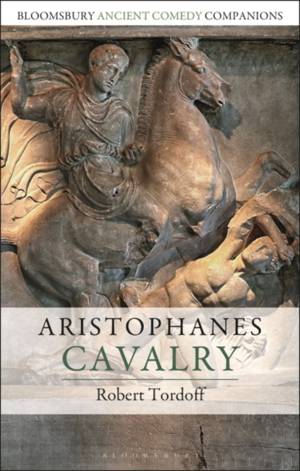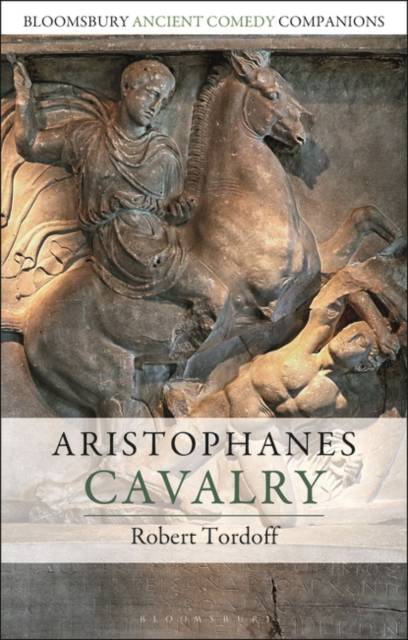
- Afhalen na 1 uur in een winkel met voorraad
- Gratis thuislevering in België vanaf € 30
- Ruim aanbod met 7 miljoen producten
- Afhalen na 1 uur in een winkel met voorraad
- Gratis thuislevering in België vanaf € 30
- Ruim aanbod met 7 miljoen producten
Zoeken
€ 161,45
+ 322 punten
Omschrijving
Offering for the first time a student introduction to Aristophanes' most explosive political satire, this volume is an essential guide to the context, themes and later reception of Cavalry. The ancient comedy is a fascinating insight into demagoguery and political rhetoric in classical Athens. These are subjects that resonate with a modern audience more now than ever before.
Originally performed in 424 BCE, Cavalrywas the first play Aristophanes directed himself and it was awarded first prize. It targets the Athenian demagogue, Cleon, who had risen to prominence since the death of Pericles and to pre-eminence after an audacious victory over Sparta in 425 BCE. In Cavalry, Aristophanes attacks Cleon's popularity with the masses, but also criticises the democracy itself as guilty of gullibility, self-interest and political shortsightedness. As the play shows, the only hope of escape from the crisis is for Athens to find a leader even more popular Cleon. And who better to be more foul-mouthed, depraved and shameless than a sausage-seller, if only because he turns out in the end to have a good heart and a true love of traditional Athenian values?
Originally performed in 424 BCE, Cavalrywas the first play Aristophanes directed himself and it was awarded first prize. It targets the Athenian demagogue, Cleon, who had risen to prominence since the death of Pericles and to pre-eminence after an audacious victory over Sparta in 425 BCE. In Cavalry, Aristophanes attacks Cleon's popularity with the masses, but also criticises the democracy itself as guilty of gullibility, self-interest and political shortsightedness. As the play shows, the only hope of escape from the crisis is for Athens to find a leader even more popular Cleon. And who better to be more foul-mouthed, depraved and shameless than a sausage-seller, if only because he turns out in the end to have a good heart and a true love of traditional Athenian values?
Specificaties
Betrokkenen
- Auteur(s):
- Uitgeverij:
Inhoud
- Aantal bladzijden:
- 192
- Taal:
- Engels
- Reeks:
Eigenschappen
- Productcode (EAN):
- 9781350065673
- Verschijningsdatum:
- 25/01/2024
- Uitvoering:
- Hardcover
- Formaat:
- Genaaid
- Afmetingen:
- 140 mm x 216 mm
- Gewicht:
- 367 g

Alleen bij Standaard Boekhandel
+ 322 punten op je klantenkaart van Standaard Boekhandel
Beoordelingen
We publiceren alleen reviews die voldoen aan de voorwaarden voor reviews. Bekijk onze voorwaarden voor reviews.








